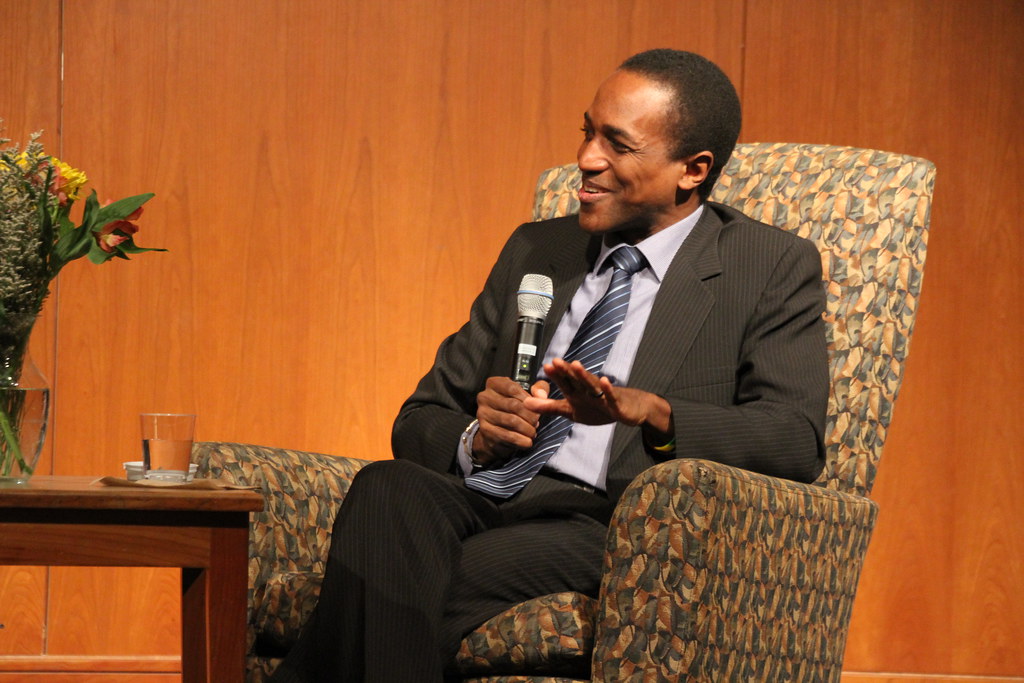
All parties accept that the claimant Maurice Tomlinson has a constitutional right to freedom of expression freedom to disseminate information that’s what the charter of rights provides where they differ is on whether that right prevails in this case Mr Tomlinson’s lawyer Lord Anthony Gifford has been arguing that his client should prevail given the power and reach of the free to air television station making them the only viable channel to reach a large chunk of the television audience but the media houses have been maintaining that Mr Tomlinson’s rights cannot trump their rights to control the materials they broadcast.
Solicitor General Nicole Foster Pusey (linked allegedly to the anti gay group Lawyers' Christian Fellowship, LCF) while acknowledging that there are competing rights on both sides said the court would have to carry out a balancing exercise in deciding whose right should prevail this is because the case against TVJ, Television Jamaica and CVM TV involves Mr Tomlinson a private individual suing two private entities that is the so called horizontal application of the charter of rights which the Solicitor General said the charter clearly allows.
PBCJ – Public Broadcasting Corporation of Jamaica is a government entity however its restriction of Mr Tomlninson’s rights by not carrying the ad has to meet the constitutional test of what is “demonstrably justifiable in a free and democratic society” it is clear the Solicitor General believes that the PBCJ has met that test since by law the station cannot carry paid ads such as that that has been offered by Mr Tomlinson, Mrs Foster Pusey said in light of this it is hard to see how the station could be said to have breached Mr Tomlinson’s rights.
Earlier today Javed Jaghai Education Officer of JFLAG spoke to platforms and constitutional challenges for minority groups on Nationwide radio's George Davis Live:
the ad in question
We wait as the learned judges Leighton Pusey, Brian Sykes go into deliberations to arrive at a decision.
Mr Tomlinson however being able to speak since the case has ended as comments are not allowed during a trial said "I can't say that I am hundred percent confident that the court will rule in my favour because they're such novel rights being contested and deliberated upon, I also think that the presentations were of such high quality on all sides that it would be impossible to say that one side will prevail based on what was presented and how the judges responded was such a well argued case.
Lawyers had argued that the station should not carry the ad as it may be against their editorial policy he responded:
"They have to get a special license that gives you a particular level of control over access to media it isn't granted to everybody those who have it have a particular level of power and as Justice Pusey commented with great power comes great responsibility."
"They certainly have a right not to have that done to them" in response to anti gay voices opposing the airing of the ad "what is being portrayed if they were to actually see the ad has nothing of that calibre, it's an ad promoting respect and love for a particular Jamaican who just happens to be gay."
Meanwhile reparative therapy advocate Reverend Al Miller (the driver in the cartoon above) who despite his own court battle of assisting a known criminal that being now imprisoned Christopher "Dudus" Coke and harbouring a fugitive who was found cross dressed in the Reverend's company to evade local authorities to a foreign state that being the US embassy and his dubious missing gun case the appeal of which he lost in February of this year has jumped on the bashing bandwaggon claiming if the ad was aired then he and other pastors would strongly object.
Strange that since the awful murders of four children in less than forty eight hours not a sound of remorse has come from these anti gay and homophobic voices but they are loud when it comes to rights and recognition towards same gender loving people. What moral authority does he have?
Rev Al Miller says gay lobby is using the guise of tolerance to get the nation to accept the “gay lifestyle”
Gleaner link: Reverend Al Miller has been found guilty of negligence resulting in the loss or theft of his licensed firearm.
Peace and tolerance
UPDATE JUNE 3, 2013 the lawyer is contemplating taking the another matter originating in Trinidad and their refusal to allow him entry recently to the Caribbean Court of Justice the CCJ:
UPDATE JUNE 3, 2013 the lawyer is contemplating taking the another matter originating in Trinidad and their refusal to allow him entry recently to the Caribbean Court of Justice the CCJ:
H
BONUS: discussion on whether Jamaican media is homophobic
UPDATE June 5, 2013
Gleaner EDITORIAL - PBCJ In The Debate For Tolerance
and
Church Stands Resolute Against Buggery Backers says Al Miller ………… Love March Movement Lacks Moral Compass says LGBT voice
BONUS: discussion on whether Jamaican media is homophobic
UPDATE June 5, 2013
Gleaner EDITORIAL - PBCJ In The Debate For Tolerance
and
Church Stands Resolute Against Buggery Backers says Al Miller ………… Love March Movement Lacks Moral Compass says LGBT voice
UPDATE June: Another case to watch for June 25, 2013





